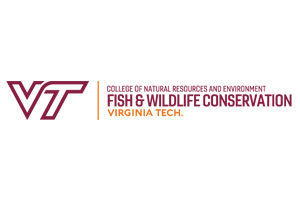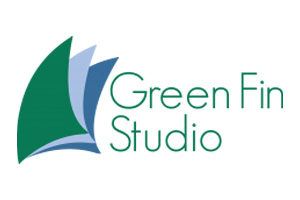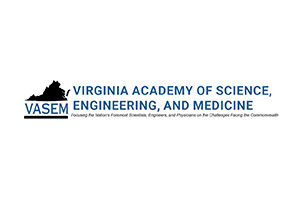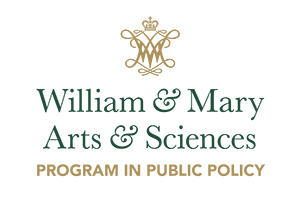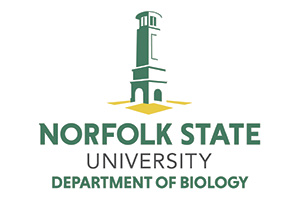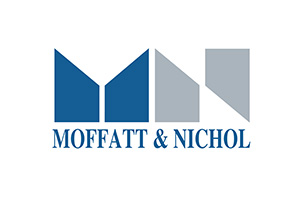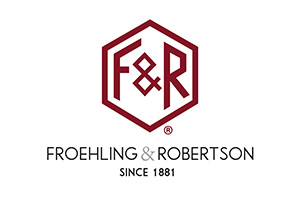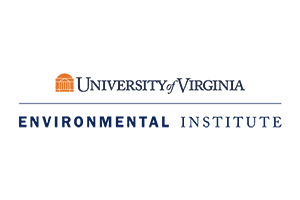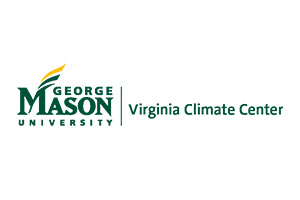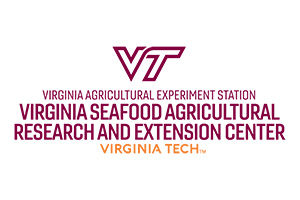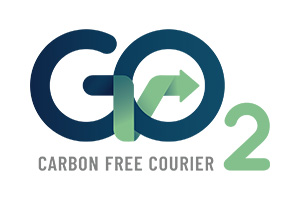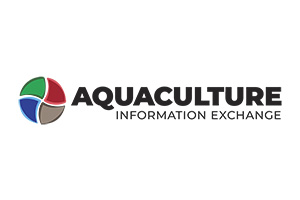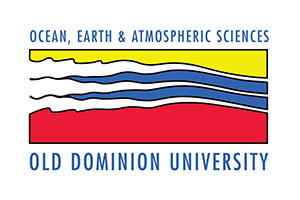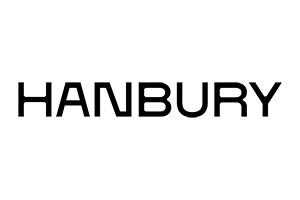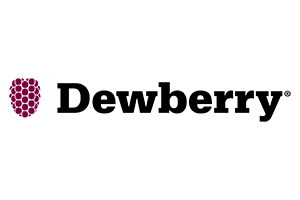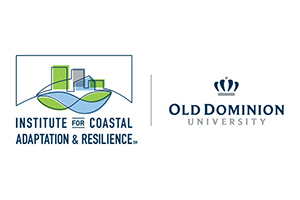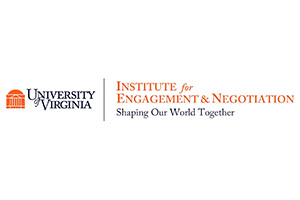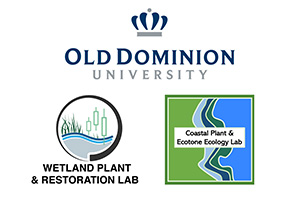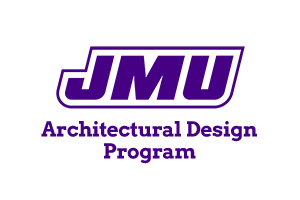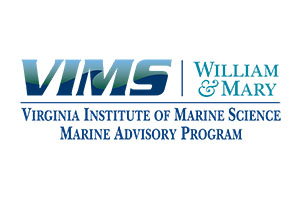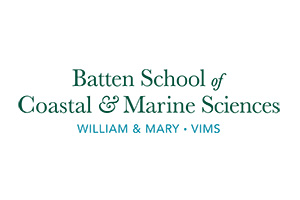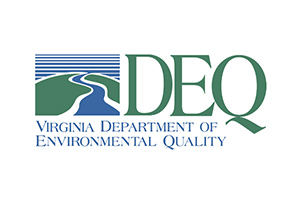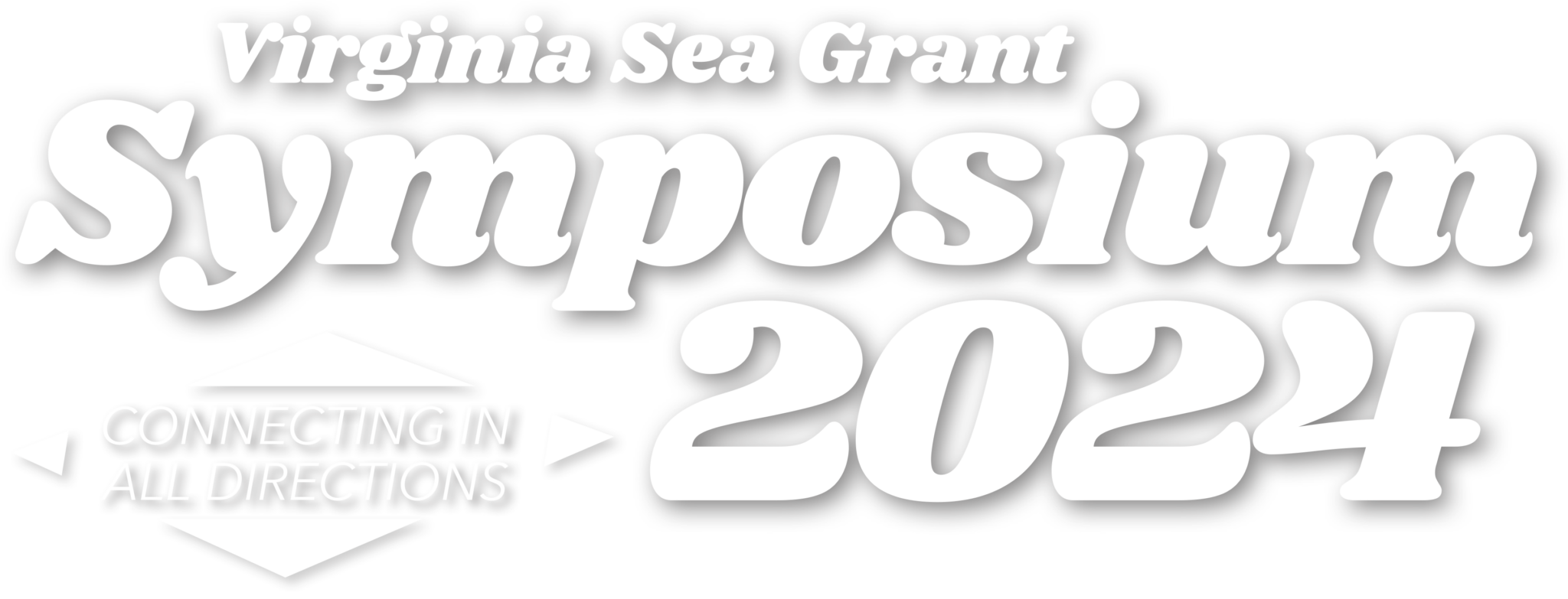Workshops & Panels
Concurrent Sessions
THURSDAY - CONCURRENT SESSIONS 1
1:40 PM - 2:40 PM
FELLOWSHIP EXPERIENCES
Room: Cape A
CHEF and PEECH Fellow Panel discussion
Climate and Health Equity (CHEF) and Policy Experience in Equity, Climate, and Health (PEECH) fellows will discuss the two fellowship experiences in a panel discussion.
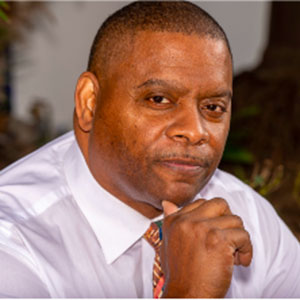
Dr. Alfred L. Glover, DPM, FACFAS
Policy Experience in Equity, Climate, and Health (PEECH) Fellow and past Climate and Health Equity (CHEF) Fellow
Urban & Environmental Planning
ROOM: Cape B
Six Principles of Equitable Collaboration
The Institute for Engagement & Negotiation will be leading an interactive session on equitable collaboration with scenario-based information. This workshop utilizes six principles of equitable collaboration as a tool for groups to navigate difficult scenarios. The goal is to foster an environment of inclusion that acknowledges group dynamics to provide for a wide spectrum of participation.
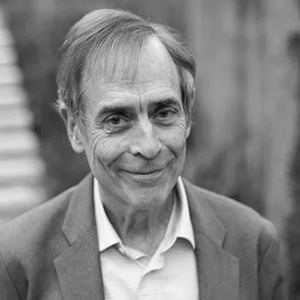
Dr. Frank Dukes, Lecturer
Institute for Engagement & Negotiation at the Cooper Center for Public Service, University of Virginia
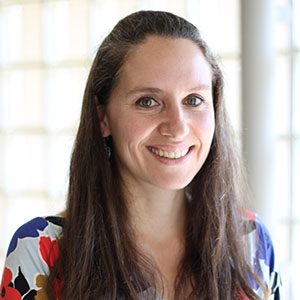
Sierra Gladfelter, Program Manager
Institute for Engagement & Negotiation at the Cooper Center for Public Service, University of Virginia
SCIENCE COMMUNICATION
Room: Cape C
From Ingredients to a Meal: Preparing Science for Consumption
Science for the sake of science is an outdated concept- broader applications, outreach, and education are now scientific best practices. But even with good intentions, how successful are we at packaging and delivering science to wider audiences? This panel will share two case studies of exceptional efforts to translate science for nontechnical audiences. The Comprehensive Evaluation of System Response (CESR) report assesses the successes and frustrations of the Chesapeake Bay restoration effort; CESR outreach has targeted the Chesapeake Bay Program and environmental leaders as key audiences. Protect Local Waterways is an online resource library that connects Chesapeake Bay Program goals and outcomes to the priorities of local government officials, aiming to educate and provide actionable information to decision makers. Our panelists will discuss their experiences and lessons learned while delivering science to nonscientists. Join us to ask what successfully delivering science looks like and learn how to make your science tastier and more digestible for wider audiences.
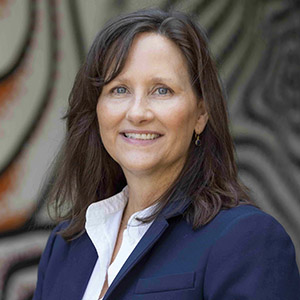
Paula Jasinski, Founder and President
Green Fin Studio
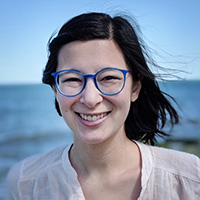
Lauren Huey, Director of Environmental Communication
Green Fin Studio
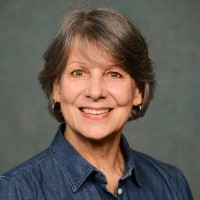
Dr. Denice Wardrop, Executive Director
Chesapeake Research Consortium
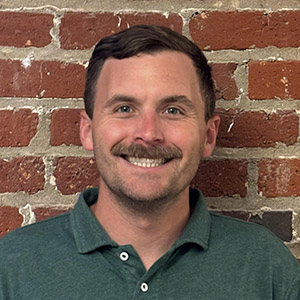
Rick Mittler, Local Government Projects Coordinator
Alliance for the Chesapeake Bay
PROFESSIONAL DEVELOPMENT
Room: Mariner A
Broader Impact Identity Process
This workshop will introduce participants to the concept of Broader Impact Identity and address the challenge of how to begin developing that aspect of their identity. An individual’s research interests, personal interests and skills, resources, and partnerships are key factors when developing their BI Identity, yet leveraging all these into meaningful activities can be daunting. All are welcome, but if possible, bring your own device with access to an AI tool.
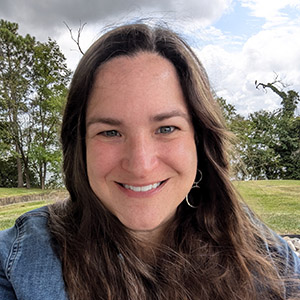
Celia Cackowski, Marine Education Specialist
Virginia Institute of Marine Science
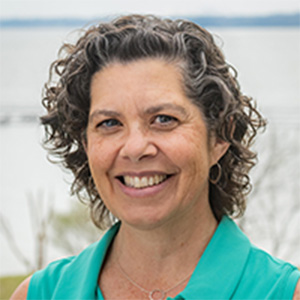
Lisa Lawrence, Marine Education Program Leader
Virginia Institute of Marine Science
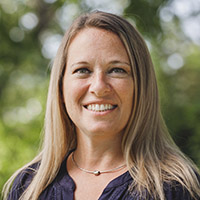
Hilary Parmentier, Professional Development Coordinator
Virginia Sea Grant
LEADERSHIP & PROFESSIONAL DEVELOPMENT
ROOM: Mariner B
Difficult Conversations in 360
This workshop focuses on developing the skills necessary to navigate difficult conversations effectively. Participants will learn practical techniques to foster healthier, more productive discussions with superiors, peers, and subordinates. The highly interactive session includes opportunities to practice these skills in real-time, enhancing confidence and competence in handling challenging dialogues.
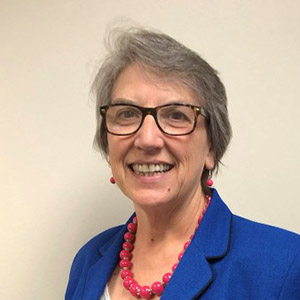
Dr. Babs Bengston, Consultant
Dr. Bengston is the former Director of Training and Development for William & Mary and is now an independent consultant hosting group trainings focusing on leadership and professional development.
THURSDAY - CONCURRENT SESSIONS 2
2:50 PM - 3:50 PM
SCIENCE COMMUNICATION
Room: Cape A
Science Communication Through Social Media
This panel will outline how to select the correct social media platform for your needs, tools for developing content, methods to humanize science, ways to connect and engage with followers, and current and upcoming virtual issues to be aware of. Attendees will benefit from this session by gaining insight into how to harness the power of social media to communicate effectively.
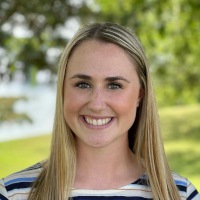
Julia Grenn, PhD Candidate (Panel Moderator)
William & Mary’s Batten School of Coastal & Marine Sciences at VIMS
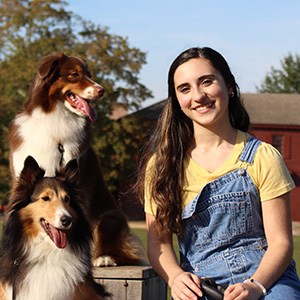
Bayleigh Albert, Graduate Student (Panel Moderator)
William & Mary’s Batten School of Coastal & Marine Sciences at VIMS
Panelists
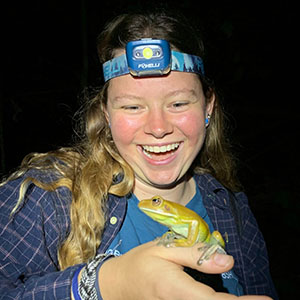
Jordan Ferré, Graduate Student
William & Mary’s Batten School of Coastal & Marine Sciences at VIMS
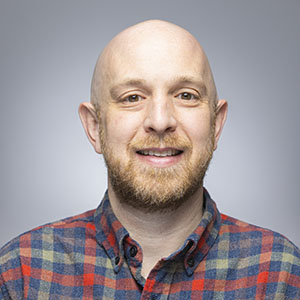
Lathan Goumas, Digital Storyteller
Virginia Sea Grant

Lauren Huey, Director of Environmental Communication
Green Fin Studio
COASTAL RESILIENCE
ROOM: Cape B
Plant Production in Virginia’s Coastal Resilience Economy
As the prevalence of coastal resilience projects in Virginia continues to grow, so does the demand for wetland plant material. Currently, many of Virginia’s resilience projects source plants from out-of-state producers. This practice is indicative of a gap in our resilience economy, stakeholder communication, and may even have negative ecological consequences. This session will overview some of the existing challenges and potential solutions for addressing these issues. We are excited to launch the Virginia Coastal & Wetland Plant Production Hub, which seeks to connect in-state plant producers with coastal resilience practitioners and planners to increase sharing of knowledge and boost our resilience economy. We will conclude this session with open discussion from interdisciplinary stakeholders on this topic.
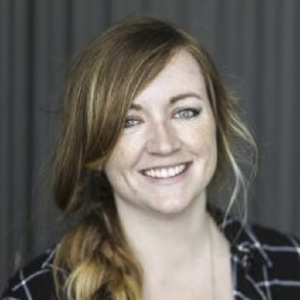
Dr. Taylor Sloey, Assistant Professor
Wetland Plant & Restoration Lab, Department of Biological Sciences, Old Dominion University
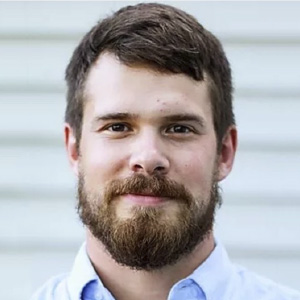
Dr. Erik Yando, Assistant Professor
Coastal Plant and Ecotone Ecology Lab, Department of Biological Sciences, Old Dominion University
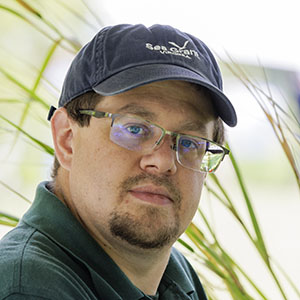
Dr. Stephen Via, Assistant Professor
Plant Physiology Lab, Department of Biology Norfolk State University
Science Policy
ROOM: Cape C
Virginia’s Programs Training Scientists & Engineers to Engage in Policy: Aims, Audiences, & Activities
The first two-thirds of the session will review the 4VA-funded research findings and feature speakers representing a science policy student organization (George Mason University’s Science Policy Network), academic graduate certificate program (Virginia Tech’s Science, Technology and Engineering in Policy), and two government placement/fellowship programs (Commonwealth of Virginia Engineering and Science (COVES) Fellowship; Commonwealth Coastal & Marine Policy Fellowship). The last 20 minutes of the session will feature a moderated discussion with the audience on ways to build further capacity for training researchers to engage in policy in Virginia.
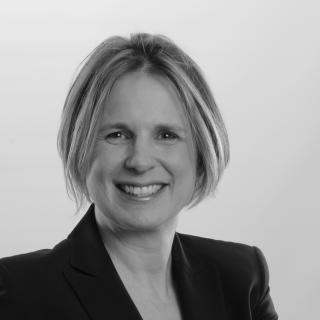
K. L. Akerlof, Associate Professor
George Mason University’s Department of Environmental Science and Policy
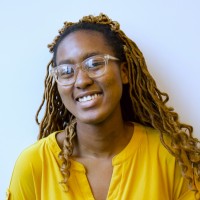
Aniyah Syl, Student and Research Assistant
George Mason University
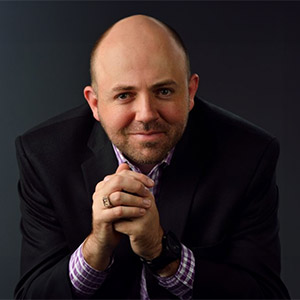
Todd Schenk, Associate Professor
Program Chair of the Urban Affairs and Planning Program in Virginia Tech’s School of Public and International Affairs
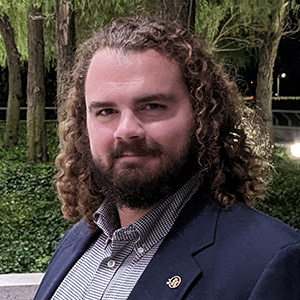
Ryan McIntyre, Graduate Student and Research Fellow
George Mason University, studying invasion ecology as a research fellow with the Army Corps of Engineers
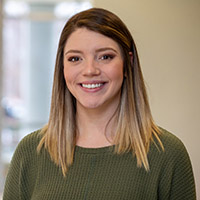
Sarah Hall, COVES Policy Fellowship Program Coordinator and Doctoral Student
Computational Tissue Engineering Interdisciplinary Graduate Education Program at Virginia Tech
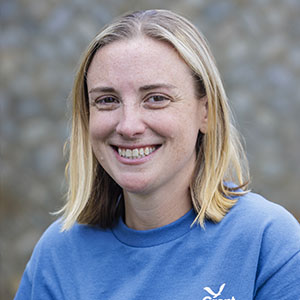
Lisa Eddy, Competitive Research and Education Coordinator
Virginia Sea Grant, Commonwealth Coastal & Marine Policy Fellowship Program
SCIENCE COMMUNICATION
Room: Mariner A
Research Origin Storytelling
One of the most “asked” questions at job talks and conferences is this: “What do you study and how did you get into it?” As scientists we often give many different responses to this question, ranging from “I just fell into it I guess!” to long rambling too-much-information essays that make a listener zone out. How do you explain what you do and why you do it in a succinct and compelling way that engages listeners and sparks interest? In this workshop, participants are guided through hands-on activities and prompts to help them develop their own authentic and compelling research origin story—one that is memorable and unique and tells the story of how they got into the research they do and why. By the end of the session, participants will have a 3minute version of their story to use in job interviews, conference networking, or public speaking engagements.
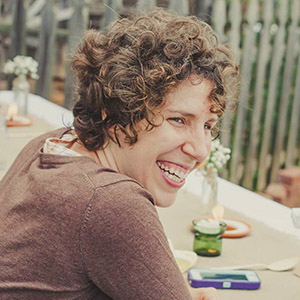
Dr. Lisa Cantrell, Executive Director, Capital Storytelling
Dr. Lisa Cantrell, founder and executive director of Capital Storytelling—a non-profit in Sacramento with the mission of connecting people through narrative— and the founding consultant at Stories of Science. She regularly consults for businesses, non-profits, and government agencies across the U.S
THURSDAY - CONCURRENT SESSIONS 3
4:00 PM - 4:45 PM
FELLOWSHIP EXPERIENCES
Room: Cape A
Flight of Fellows
Join alumni of various Virginia Fellowships as they discuss their experiences and give their unique insights on their various projects and successes.

Lisa Eddy, Competitive Research and Education Coordinator (Panel Moderator)
Virginia Sea Grant

Sarah Hall, COVES Policy Fellowship Program Coordinator (Panel Moderator)
Ph.D. candidate, Biomedical Engineering and Computational Tissue Engineering, Virginia Tech
Panelists
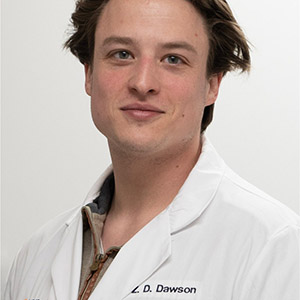
Zach Dawson, COVES Fellow
PhD Candidate, University of Virginia
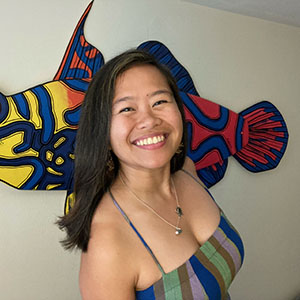
Jem Baldissimo, COVES Fellow
PhD Candidate, Ecological Sciences Program, Old Dominion University
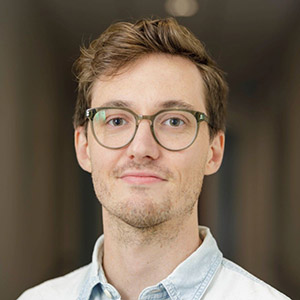
Adrian Robins, VASG Graduate Fellow
Research Specialist, Natural Infrastructure Lab, University of Virginia School of Architecture
SCIENCE COMMUNICATION
Room: Cape B
Storytelling with ArcGIS Story Maps
Are you interested in learning how to use ArcGIS Story Maps to illustrate research, stories, presentations, lesson plans, and more? Bayleigh Albert will discuss her experience with story maps by walking the audience through how to organize information into an engaging story and outlining useful tools in the program. She will use example story maps for participants to visualize the flow of various story maps, highlight available tools, and inspire ideas for how to organize a story map of your own. The presentation will end with a Q&A session.

Bayleigh Albert, Graduate Student
William & Mary’s Batten School of Coastal & Marine Sciences at VIMS
Interdisciplinary and Community-Based Research
Room: Cape C
The Eastern Shore of Virginia Climate Equity Project: Addressing Climate Inequities Through Interdisciplinary and Community-Based Research
The Eastern Shore of Virginia (ESVA) Climate Equity Project aims to bring together researchers from Virginia universities and local community members to address climate inequities specific to the coastal region of the ESVA. The goal of this collaborative effort is to create a Climate Equity Atlas – a tool designed to empower community members, stakeholders, policymakers, and academics to explore various climate change scenarios and understand regional impacts, ultimately serving as a valuable decision-making resource. During this session, graduate students from diverse fields such as environmental science, engineering, and urban planning will discuss the diverse aspects of research that contribute to the atlas, while also sharing experiences about the community’s continuous involvement. More specifically, members from the community engagement team will discuss project approaches to community involvement and co-production, while the modeling team will provide a brief overview of various risk maps that address issues like storm surge, saltwater intrusion, and roadway vulnerability. After these brief presentations, attendees will engage in an interactive dialogue to explore the diverse potential applications of an interdisciplinary tool like the Climate Equity Atlas. This interactive session will facilitate knowledge sharing among participants and allow them to learn from each other’s distinct experiences and insights.
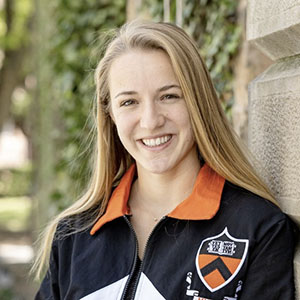
Hanne Borstlap, PhD Student
Department of Environmental Sciences at the University of Virginia
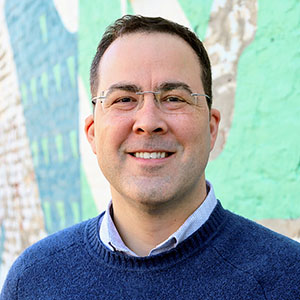
Lincoln Lewis, PhD Student and Climate Equity Doctoral Fellow
Equity Center, University of Virginia
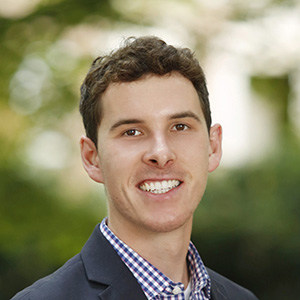
Dan Pelletier, PhD Student
Civil Engineering Department, University of Virginia
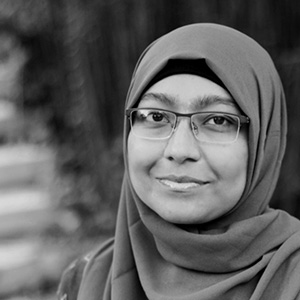
Nashit Tasmin, Graduate Student
Urban and Environmental Planning, University of Virginia
SCIENCE COMMUNICATION
Room: Mariner A
Data Storytelling
How do you make a research presentation compelling? One of the biggest secrets in science communication is this: the same narrative strategies that Hollywood uses for creating compelling movies are those that we should be using to talk about our research findings. In this workshop, participants experience demos of research presentations told with and without storytelling components and then discuss how a story format pushes the audience’s thinking forward about the research. Dr. Lisa Cantrell—a seasoned science communicator and storyteller— then pulls back the curtain to reveal the components of good stories (tension, stakes, and a pivotal moment) and how those components can be infused into any research presentation. She gives participants step-by-step guidance on how to turn their own research into a data story through hands-on activities and small group sharing. By the end of the session, participants will have a draft of their own research data story and a method for turning their future studies into data stories for presentations at conferences, job talks, and speaking engagements.

Dr. Lisa Cantrell, Executive Director, Capital Storytelling
Dr. Lisa Cantrell, founder and executive director of Capital Storytelling—a non-profit in Sacramento with the mission of connecting people through narrative— and the founding consultant at Stories of Science. She regularly consults for businesses, non-profits, and government agencies across the U.S
ECOLOGICAL ENGINEERING AND WATER QUALITY
Room: Mariner B
PFAS in stormwater systems within socioeconomically disadvantaged communities in coastal VA – their prevalence and mitigation opportunities
PFAS in stormwater systems within socioeconomically disadvantaged communities in coastal VA – their prevalence and mitigation opportunities. During this presentation, we will co-present our past and ongoing investigations to characterize the transport and fate of PFAS in coastal urban stormwater systems via a key potential pathway: leaking sewer infrastructure.
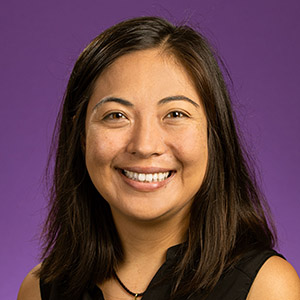
Dr. Natasha Bell, Assistant Professor
Department of Biological Systems Engineering, Virginia Tech
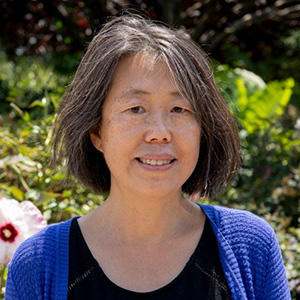
Dr. Kang Xia, Professor and Associate Director
Dr. Xia is a professor of environmental chemistry in the School of Plant and Environmental Sciences at Virginia Tech, and also serves as Associate Director of the Virginia Agricultural Experiment Station and Director of the Center for Advanced Innovation in Agriculture.
FRIDAY - CONCURRENT SESSIONS 4
1:40 PM - 2:40 PM
COMMUNITY ENGAGEMENT
ROOM: CAPE A
The Value of Community Engagement When Dealing With Sea Level Rise and Other Environmental Issues
How to build bridges within communities where you may be an “other”, and to discuss what the term environmental justice means to those in the field.
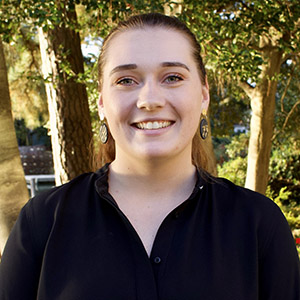
Gabrielle Kinney, Community Engagement Project Manager (Panel Moderator)
Wetlands Watch
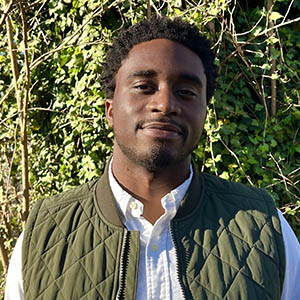
Jelani Sparrow, Collaboratory Program Manager
Wetlands Watch
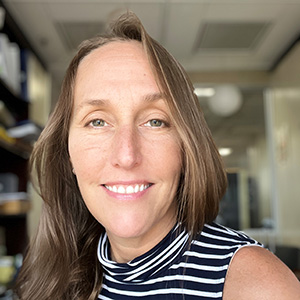
Anna Hammond, Resilience Specialist
Wetlands Watch
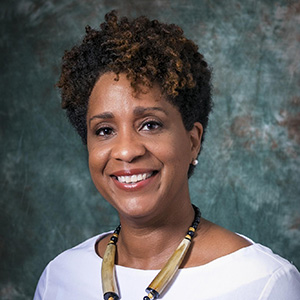
Kim Sudderth, CEO of Grass Roots Organizers
Wetlands Watch
Professional Development
Room: Cape B
Enhancing Emotional Intelligence for Effective Professional Relationships
This engaging and interactive one-hour workshop on Enhancing Emotional Intelligence (EQ) for Effective Professional Relationships is designed to equip attendees with practical strategies to improve communication, collaboration, and networking within the marine science and policy community. Participants will explore the key components of EQ, including self-awareness, self-regulation, motivation, empathy, and social skills, and learn how these elements contribute to professional success. Through self-assessments, interactive activities, and role-playing exercises, attendees will develop and refine their EQ skills, gaining valuable insights into managing emotions, understanding others’ perspectives, and building stronger professional relationships. This workshop offers a valuable resource for Symposium 2024 by fostering a collaborative and emotionally intelligent community, enhancing professional interactions, and supporting the symposium’s theme of “Connections in All Directions.”
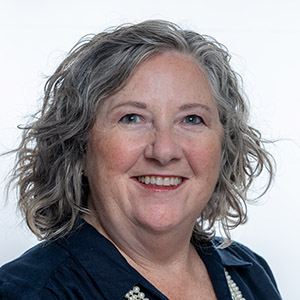
Stephanie Burton, Founder
Smart Leadership Solutions, LLC
Mentorship
Room: Cape C
Facilitating Academic Excellence: Mentorship and the Power of Connections
This session highlights theoretical and practical considerations of mentorship of undergraduate and graduate students, early and mid-career faculty, and administrative professionals. Discussion topics will include persistent feelings of imposter syndrome, establishing and managing expectations in mentorship, resource and research sharing for program development, and building a community of mentors. The panelists will draw upon existing literature and best practices through the exploration of mentorship programs at William & Mary’s Virginia Institute of Marine Science (VIMS) and Virginia Sea Grant. Attendees will also participate in an interactive experience that reinforces the power and significance of impactful mentorship. This session has the following learning objectives: • Establish the importance of proactive mentorship • Discuss the value of both formal and informal mentorship programs • Address traditional and contemporary barriers to effective mentorship • Detail practical steps to achieving effective mentoring relationships both as a mentor and mentee • Practice developing mentorship skills and assessing outcomes.
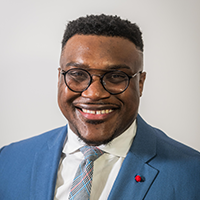
Daniel Ogunyemi, Director of Inclusive Excellence & Belonging
William & Mary’s Batten School of Coastal & Marine Sciences at VIMS
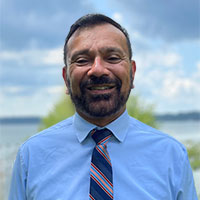
Dr. Siddhartha Mitra, Professor & Associate Dean of Academic Affairs
William & Mary’s Batten School of Coastal & Marine Sciences at VIMS

Hilary Parmentier, Professional Development Coordinator
Virginia Sea Grant
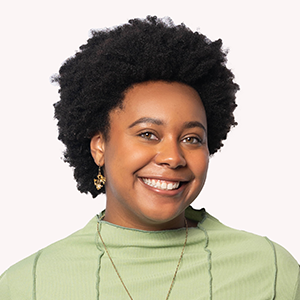
Madison Griffin, Graduate Student
William & Mary’s Batten School of Coastal & Marine Sciences at VIMS
community engagement
Room: Mariner A
Inspiring real community engagement with faith based organizations to be a part of the inflation reduction act and justice 40 initiative
Dr. Glover discusses a project he is leading with his church, a large congregation with over 25,000 members located in the middle of South Los Angeles, California. This is a community that has suffered over the last few decades in terms of being left behind economically, not receiving the same benefits and innovations that other parts of Los Angeles have enjoyed. The facility will be transformed into a self-contained resilient refuge center during extreme weather events and other climate catastrophes. The church will partner with the utility companies and other innovative companies to provide access to sustainable, good-paying green economy jobs for church and community members. This project will be vital for the health and longevity of this community.

Dr. Alfred L. Glover, DPM, FACFAS
Policy Experience in Equity, Climate, and Health (PEECH) Fellow and past Climate and Health Equity (CHEF) Fellow
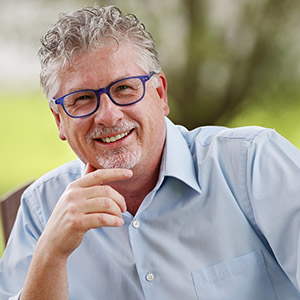
Dr. Troy Hartley, Director
Virginia Sea Grant
COmmunity Engagement & Outreach
Room: Mariner B
Making Science Accessible: An Interactive Approach Using Spatial Variability in Salt Marshes
Hands-on exercise. Participants will leave with a better understanding of how to communicate scientific research effectively to diverse audiences. Use of Problem-Solving Frameworks:
- Practical experience in using a design thinking framework to address and solve environmental issues, with a focus on the human component.
- Improve community engagement techniques with strategies for co-producing solutions and collaborating with community partners.
- Being part of a collaborative experience, with an opportunity to work in groups, share ideas, and learn from peers, fostering a sense of community and collaboration among participants.
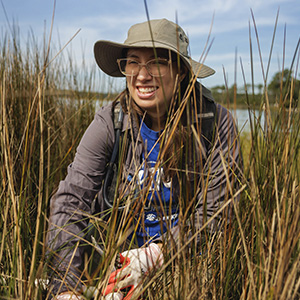
Zlatka Rebolledo Sanchez, PhD Student
Department of Biological Sciences, Old Dominion University
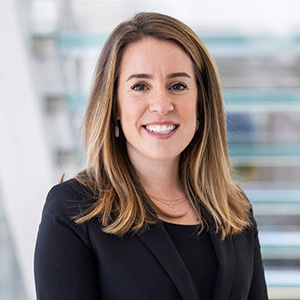
Alex Clayton Moya, Officer
U.S. Conservation, The Pew Charitable Trusts
FRIDAY - CONCURRENT SESSIONS 5
2:50 PM - 3:50 PM
Interdisciplinary collaboration & community Engagement
Room: Cape A
Nepal Water Initiative Panel
The Nepal Water Initiative (NWI) is a multidisciplinary collaboration led by scientists and scholars from the Virginia Institute of Marine Science (VIMS), the Global Research Institute (GRI), the Institute for Integrative Conservation (IIC), and the Religious Studies Department. The project focuses on the challenges for the conservation of the fishes in Nepal. This panel will discuss the interdisciplinary work and team-building for the NWI.

Dr. Troy Hartley, Director
Virginia Sea Grant
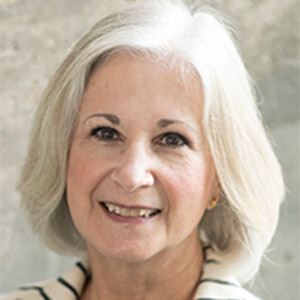
Dr. Mary C. Fabrizio, Professor of Natural Resources
William & Mary’s Batten School of Coastal & Marine Sciences at VIMS
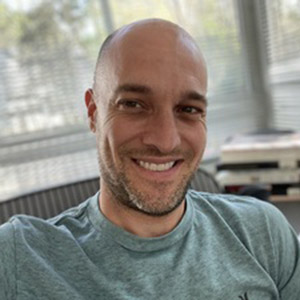
Patton Burchett, Associate Professor
William & Mary College of Arts & Sciences, The Nepal Water Initiative
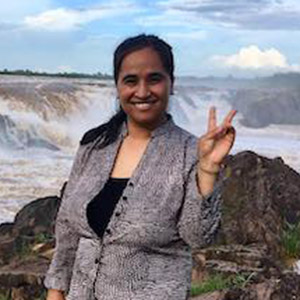
Dr. Sapana Lohani, Geospatial Data Scientist and Professional Affiliate
W&M Interdisciplinary Studies Program
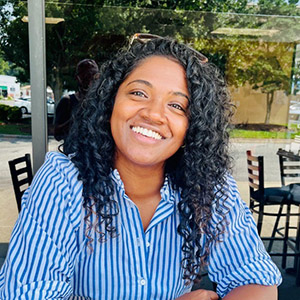
Dr. Nara Sritharan, Visiting Assistant Research Professor and Postdoctoral Fellow
William & Mary Department of Economics and AidData
Science Communication
Room: Cape B
Communicating Science and Cultivating Connections
Want to learn how to engage and connect with diverse audiences about your research? This session is designed to enhance your science communication strategy through a series of interactive activities. You will explore ways to connect with audiences, articulate the significance of your research, and create compelling messages that resonate. The activities will foster self-reflection and practical application, equipping you with a toolkit of strategies to effectively share your science with stakeholders. Join us to develop your skills in the areas of public engagement and effective storytelling.
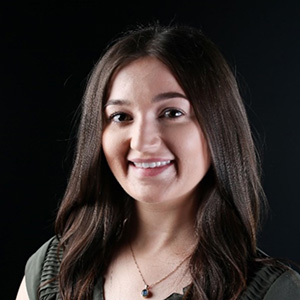
Dr. Jean Parrella, Assistant Professor
Department of Agricultural, Leadership, and Community Education, Virginia Tech
Interdisciplinary collaboration
Room: Cape C
A Disciplined Approach to Resilience
Professions, as disciplines, often demand a focus: a set of core competencies attained through effort, dedication, training, and experience. But we are also often called to develop an aptitude beyond the domain of that focus. As a means of exploring the relationships between those interests (which can span from sympathetic to antagonistic), this session considers the development of a subject matter expertise (resiliency) within a primary professional proficiency (architecture). A panel of architects will share thoughts and perspectives from their own professional development, and then engage the attendees in discussion and additional inquiry.

Paul R. Battaglia, Executive Vice President
American Institute of Architects, Virginia
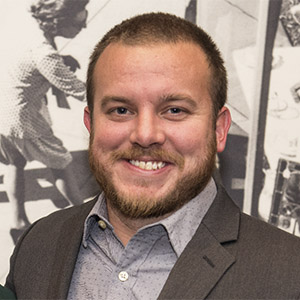
Scott Campbell, Principal
VIA Design
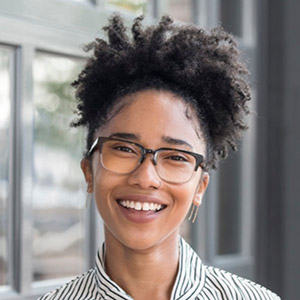
Ashley Montgomery, Director of Research and Design Strategy
Hanbury
AI TECHNOLOGY
Room: Mariner A
Climate, Weather, and Health Implications Utilizing AI Technology
Many medical associations are using AI technology to optimize workflows. AI saves time and reduces cognitive overload for physicians and staff. Dr. Glover will explore how integrating climate and environmental prompts will improve patient care.

Dr. Alfred L. Glover, DPM, FACFAS
Senior Advisor, OptimaNova AI, Policy Experience in Equity, Climate, and Health (PEECH) Fellow, and past Climate and Health Equity (CHEF) Fellow
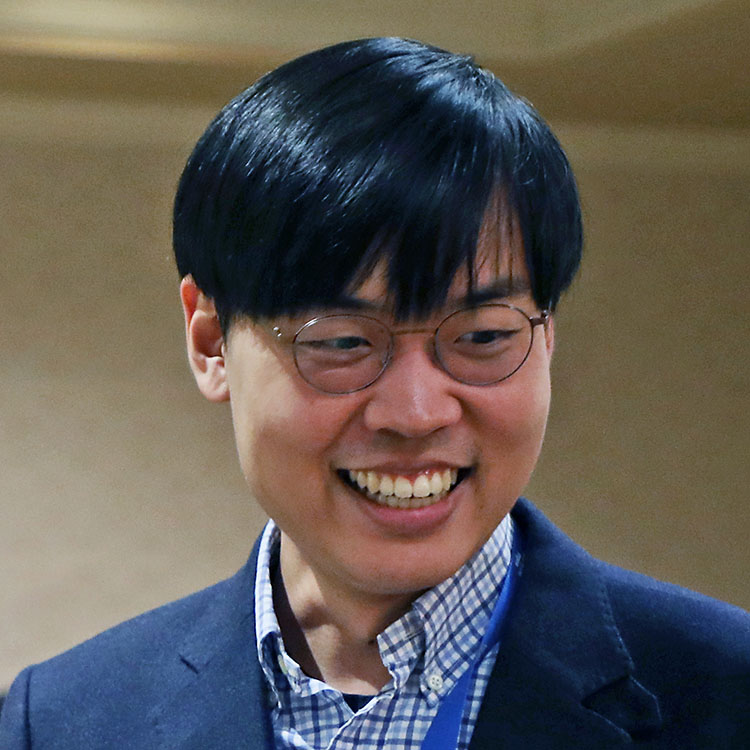
Symposium 2024 Sponsors
